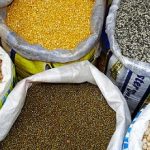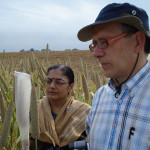January 18, 2017 marks the second Global Pulse Day designed to emphasize the benefits of pulses for farmers, consumers, and the environment. IFPRI’s research, technical support, and outreach activities on pulses have provided inputs to policy discussions.
Innovative Approaches to Productive and Sustainable Rural Development by the IFPRI-FAO Partnership
To feed the growing world population, agricultural productivity needs to increase without compromising conservation of the world’s natural resources. Recognizing that research and innovation are essential to achieving a balance between productivity and sustainability, the Food and Agriculture Organization of the United Nations (FAO) has collaborated with IFPRI to conduct research and develop solutions such >> Read more
Contributing to Improve Crop Productivity
Crops play a critical role in global food security as a source of food and feed. On August 14-19, 2016, the Congress will hold its 7th meeting in Beijing, China, focusing on new technology and information that can help improve crop productivity.
Comparison of Hunger across States: India State Hunger Index
MOTIVATION Since 2006, IFPRI has published the Global Hunger Index (GHI), an annual ranking and report that measures the state of hunger both worldwide and by country. In 2008, IFPRI—in collaboration with the German NGO Welthungerhilfe and Irish NGO Concern Worldwide— constructed the India State Hunger Index (ISHI) to compare hunger levels between states within >> Read more
Pulses for Nutrition in India
MOTIVATION Pulses, such as yellow peas, pigeon peas, chickpeas, lentils, and beans, are an important source of protein and are also integral to soil health. Despite their health and environmental significance, pulses are not given sufficient attention within India. IFPRI’s work on pulses, supported by A4NH, looks at the factors that contribute to their underutilization >> Read more
HarvestPlus India
MOTIVATION HarvestPlus, part of the CGIAR Research Program Agriculture for Nutrition and Health (A4NH), seeks to reduce hidden hunger—also known as micronutrient deficiencies—by breeding and deploying staple food crops that are rich in vitamins and minerals. It develops such crops through a process called biofortification and partners with public and private sector organizations to disseminate >> Read more




